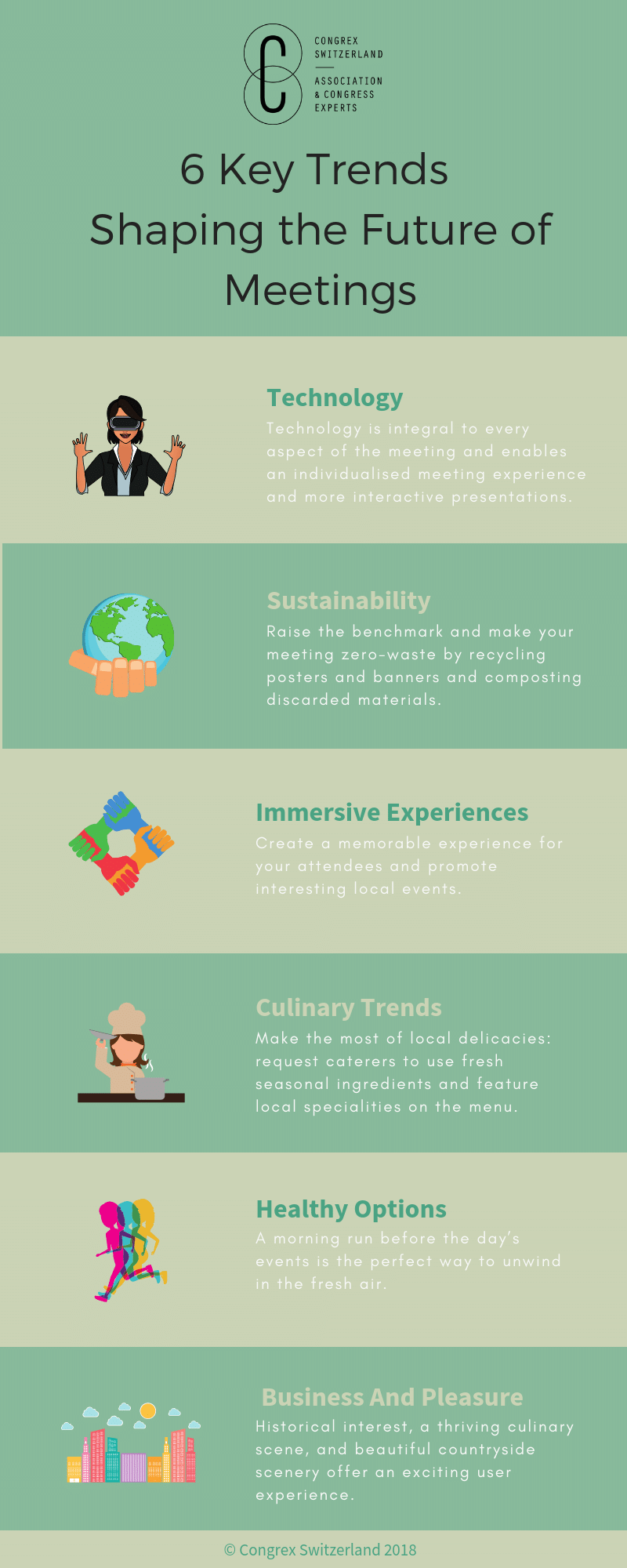As for meeting and event planners and all stakeholders of the meetings and events industry, we are still witnessing the devastating impacts of the COVID-19 pandemic. But little by little, we see the light at the end of the tunnel: Some countries are already easing lockdowns, and even the first events and conferences are going to be live very soon.
However, will it be business as usual for event organisers?
Unfortunately not, but as planners, we are more than capable of readjusting and adapting to the situation, aren’t we? In this time of uncertainty, we have to encourage ourselves for a new landscape in meetings and events.
RELATED: Disruption In The Business Events Industry: Rising To The Challenges Of COVID-19
Let us look at the future of events after COVID-19 and the opportunities for reviving our industry:
What Does The Future Of Events Look Like?
Since mass gatherings are one of the proven vehicles of spreading any disease, many people will be sceptical about attending conferences soon. While the virus recovery timeline is still not promising, the events industry cannot remain frozen. Therefore, smaller events with a manageable audience are the immediate future of the industry.
The event design is also bound to change dramatically due to social distancing requirements. At this point, it would be close to impossible to hold round table discussions, and personal interactions will be a challenge. Here are some notable changes in the future of events after the Coronavirus pandemic:
Social Distancing
For an industry that thrives in human interactions, physical distancing will be a headache for event planners; they will have to book a large venue to host a small number of invitees. The event design will also have to adopt a new seating arrangement. For instance, planners might be forced to rethink seating, like forgoing the theatre style and go for a U-style, which allows for more distance while promoting conversations.
If the venue does not offer a big space, organisers will require cameras in various rooms so that the speaker can reach a broader audience.
Registration Desks
Apart from keeping invitees the required distance apart, you may have to find creative ways to register guests on the registration desk. If you must register invitees, you can use physical signage to show the correct distance in queues. You should also avoid handing out badges for a while. Alternatively, you can ask visitors to print badges at home and self-scan at the registration booth.
Catering and Self-Serving Buffet
Event organisers like having a food or coffee buffet for guests in between sessions. However, catering will change since self-serving buffets put guests at risk. If event organisers have to plan for seated dining with the specified physical distance, the cost of food and beverage will skyrocket even with tight budgeting. Coffee and tea stations are a significant part of a conference, but after COVID-19, they may be a thing of the past. Instead of cups and coffee mugs, disposable cups will be preferable. But what about all the sustainability efforts then?
Social Activities
The major draws for face-to-face events are the socialising and networking components. It is fair to say that it would be too risky to attempt social activities soon. It will increase the chances of handshaking and mass gathering, which is against distancing requirements. However, event organisers can structure and guide networking sessions. For instance, encouraging seated interactions will ensure adequate physical distancing while having a conversation.
Mobile Apps and Social Media
Minimal physical contact prohibits passing around a microphone during an interactive session. Luckily, social media pages and mobile apps can make up for the shortcoming. An attendee can post a question or comment using the event hashtag. It will also be best to allow guests to send questions to the speaker’s screen using their phones without jeopardising anyone’s health.
Download our free White Paper: DISRUPTION IN THE BUSINESS EVENTS INDUSTRY: RISING TO THE CHALLENGES OF COVID-19
Guidelines for Safety During Events
Even with the above changes, people will have doubts about attending a live event unless there are stringent measures in place. To put the invitees at ease, event planners could publish guidelines which might include:
Thermal Scanning
Post-COVID-19 events will require thermal scanning at entrances. Therefore, event organisers should prepare for it. If the venue is not well equipped for thermal scanning, it will jeopardise the security of the conference. While there is speculation as to whether thermal scanning helps to curb the spread, it is an expected layer of protection. Installing thermal cameras in the venue will also give the invitees some reassurance.
Handwashing and Sanitising Booths
Sanitising booths are becoming a staple in most public locations. The future of events after COVID-19 will have improved sanitation outside conference halls. A handwashing booth should be available with signage to instruct invitees. Before the event, planners should have push notifications via mobile apps to encourage handwashing at the event. Apart from providing sanitation services during your events, it would help if you gave away free masks.
Decontamination and Misting Booths
Regular disinfection of high traffic areas and surfaces will be vital. Therefore, an on-site cleaning crew will come in handy. They can decontaminate doors, equipment, and high-contact surfaces. The new normal will also call for disinfection of the conference halls during breaks.
Triage
Event organisers may need to offer triage or a room to isolate staff or guests who fall ill during the event. If the affected attendee cannot leave immediately, the organisers should contact the local hospital. When putting together the event, it is also essential to have a plan for taking care of the vulnerable population. While you can discourage them from attending, when they show up, you need to have measures in place to ensure their safety.
Hybrid and Virtual Networking Is the Future of Events After COVID-19
Even when physical events are back in full swing, we expect a surge in the popularity of virtual and hybrid events. With the lack of a vaccine and fears of a second outbreak, event organisers will be wary of holding large conferences. Many organisers are already acquiring resources to boost attendance and quality of their virtual events.
RELATED: A Guide To Help You Host Virtual Conferences
Before the Coronavirus pandemic, virtual conferencing was an afterthought due to the need for human interaction. However, hybrid events are becoming a popular way of conducting events without jeopardising the safety of guests. Hybrid events enable a small group to attend a face-to-face discussion and involve a broad audience through multiple digital channels. Apart from enhancing the experience of virtual conferences, they provide global outreach. Guests from around the globe can convene and listen to the round table discussion from experts; they can also contribute and interact with other invitees.
Conclusion
Hosting events will be challenging after the pandemic. For most organisers, the risk component is unbearable and virtual, and hybrid solutions will be part of the new normal. However, with the right measures and involvement of health and safety experts, and guidelines in place, we will be able to organise, host or attend live events.
——
Congrex Switzerland is an internationally operating agency delivering customised solutions. This encompasses the overall organisation of conferences and meetings, including the management of hotel rooms and the strategic consultancy. Annually Congrex Switzerland organises approximately 45 events with over 73’000 delegates. Amongst our clients are international associations, governmental organisations and corporations.








